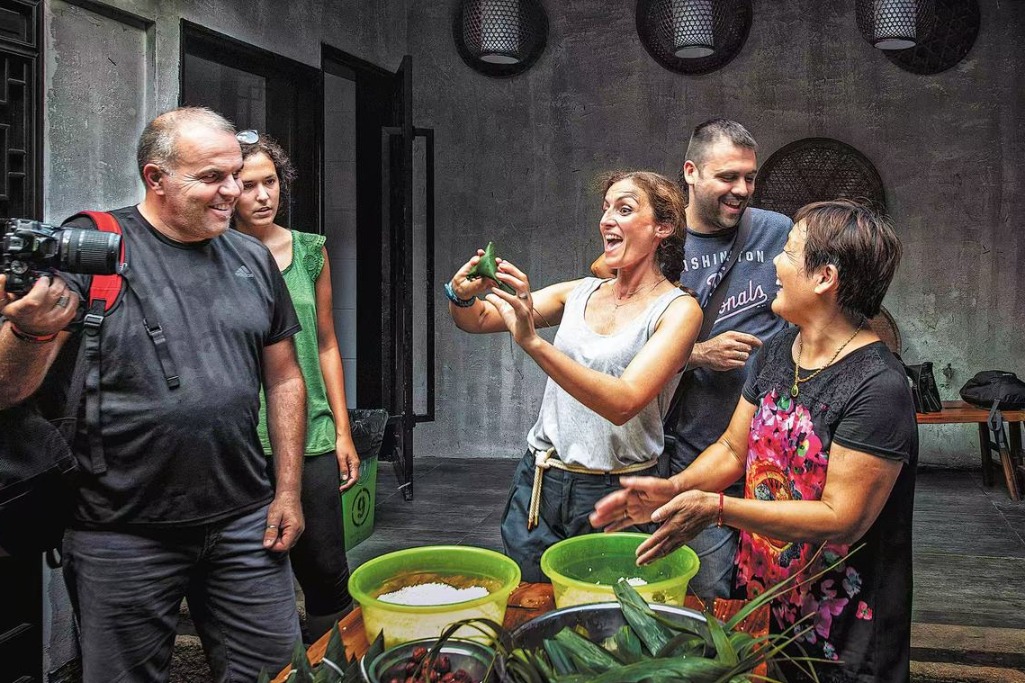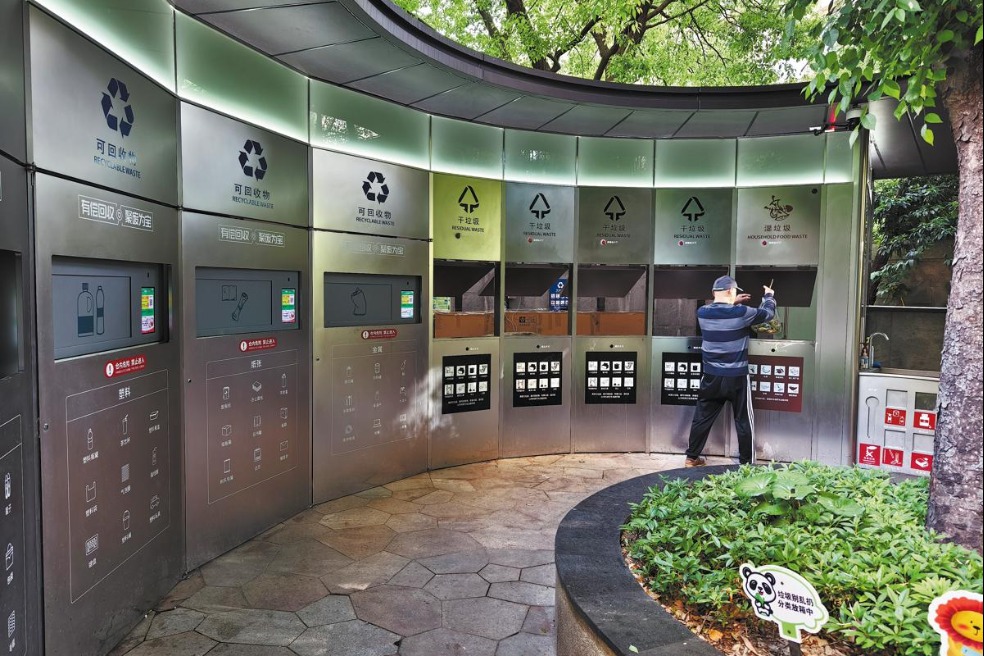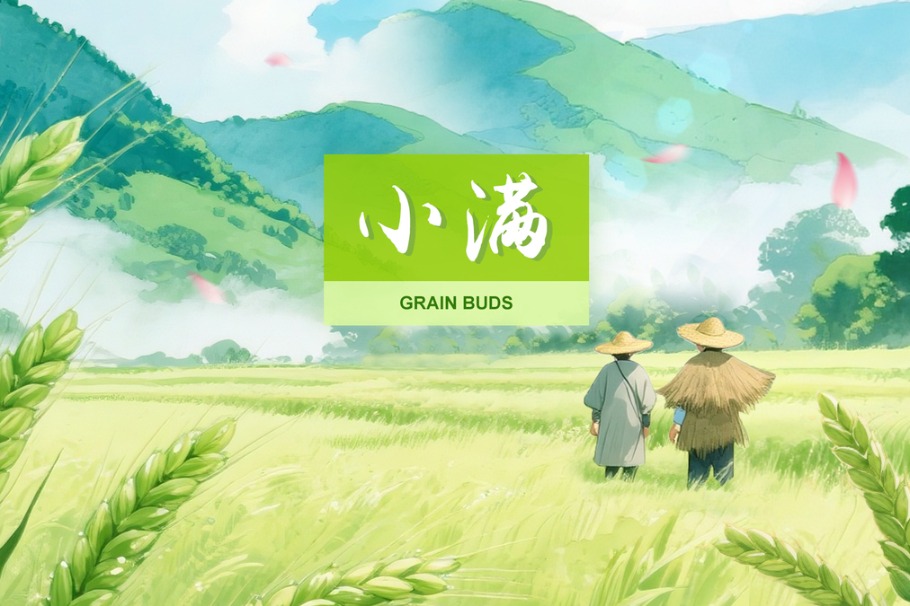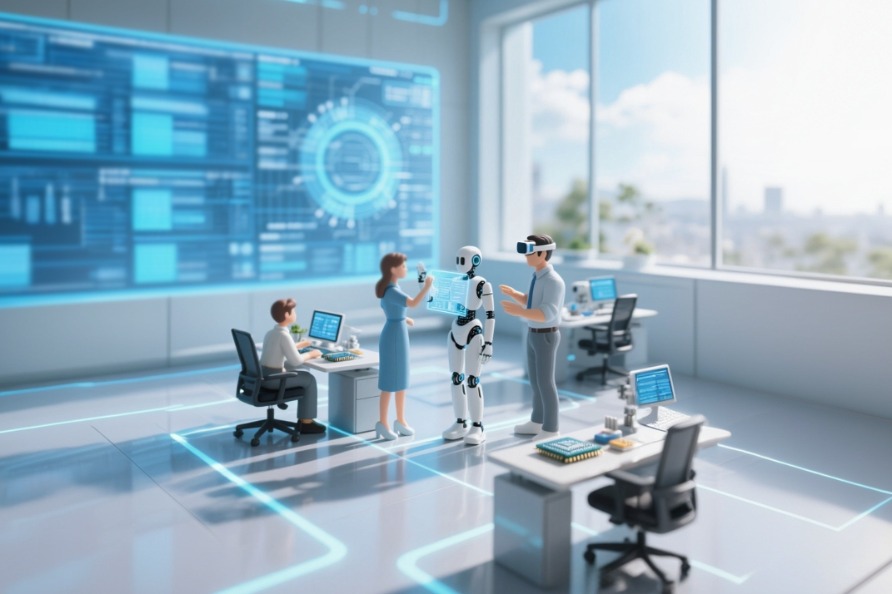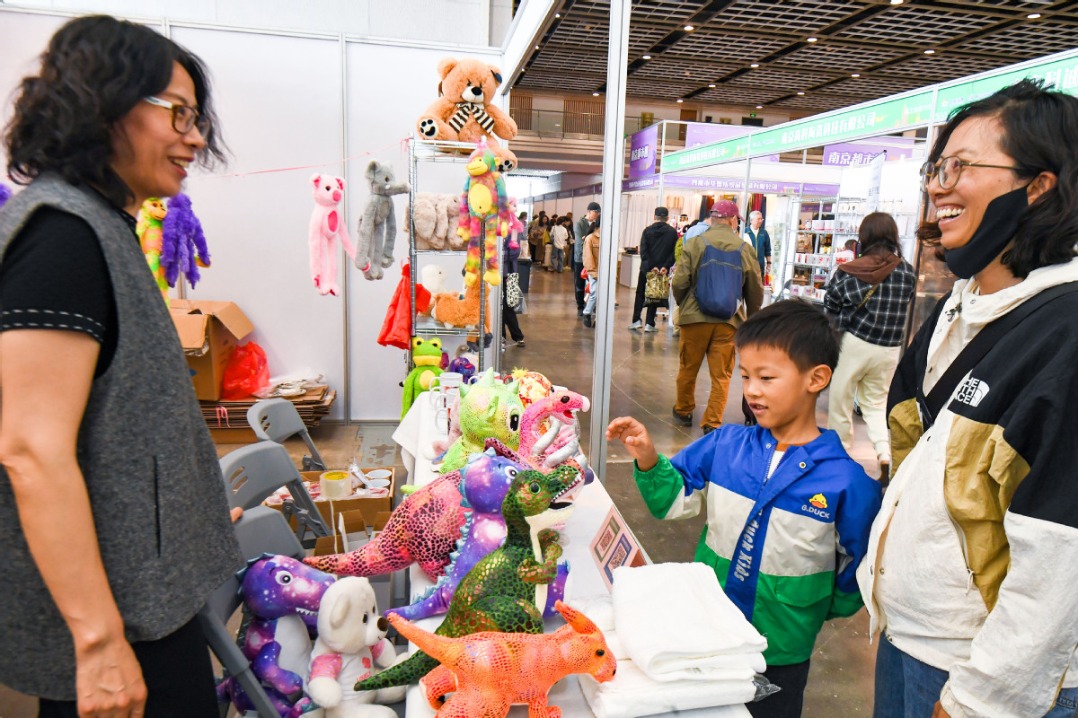German enterprises create 'dough' in Taicang
City in Suzhou a 'bakery' of success for over 550 firms from Germany

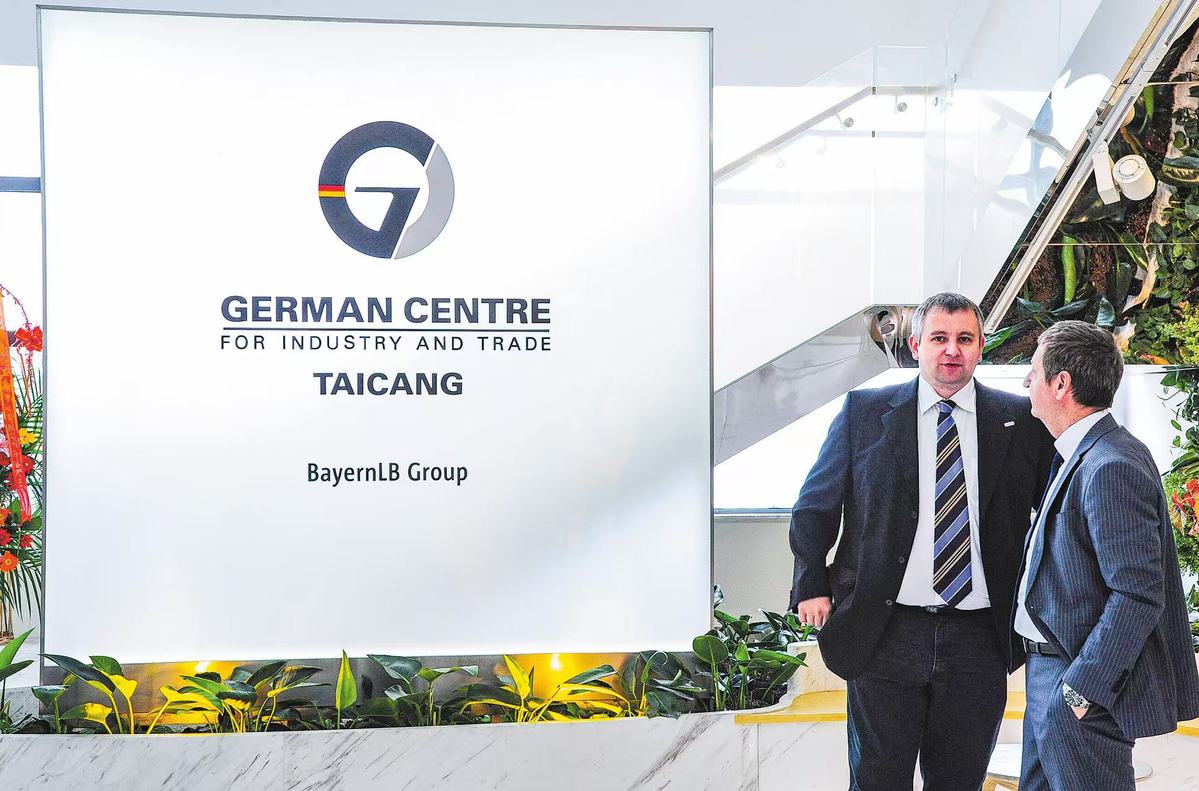
Just before dawn in Taicang, a county-level city in East China's Suzhou, Jiangsu province, hot dough at Brotecke — a beloved German bakery — is kneaded into loaves and other shapes by a master baker.
Just a few kilometers away, newly built auto parts come to life at a factory of German supplier Schaeffler, where finished products are spirited along spotless floors, moving between vehicles via robotic arms.
"Doing business in Taicang is like baking German bread. Not only does the business grow bigger, it gets more aromatic," said Armin Kress, vice-president of strategy and processes at Schaeffler Greater China, in very good Chinese.
Over the past three decades, Taicang, just 800 square km and home to around 800,000 people, has gradually gathered more than 550 German enterprises in total, making it a true home for German businesses.
The No 103 bus route through Taicang tells the story in miniature. Each stop bears the name of a German company, which include Kern-Liebers, Trumpf and TOX.
Within a four-km radius of the Kern-Liebers stop, over 40 foreign-invested enterprises, mostly from Germany, have established operations.
These German firms, occupying just 0.24 percent of the city's land, have contributed about 8 percent of Taicang's GDP.
Schaeffler led the way in 1998, when it established its first Chinese plant in the city. In an interview with China Up-Close, a major business omnimedia column of China Daily, Kress gestured to rows of conveyor belts where cobalt-blue automated guided vehicles ferried raw coils into robotic presses.
"This was our very first factory in China, both our oldest and our newest," Kress said, recalling when German engineers calibrated bearings by hand and trained local workers on delicate assembly techniques.
Over the past three decades, Schaeffler has reinvested 13 times, pouring more than 11 billion yuan ($1.5 billion) into expansion, he said.
"Today, the site's annual output tops 20 billion yuan, and a new factory wing — completed in March 2023 — melds the company's original workshops with state-of-the-art technologies," he said.
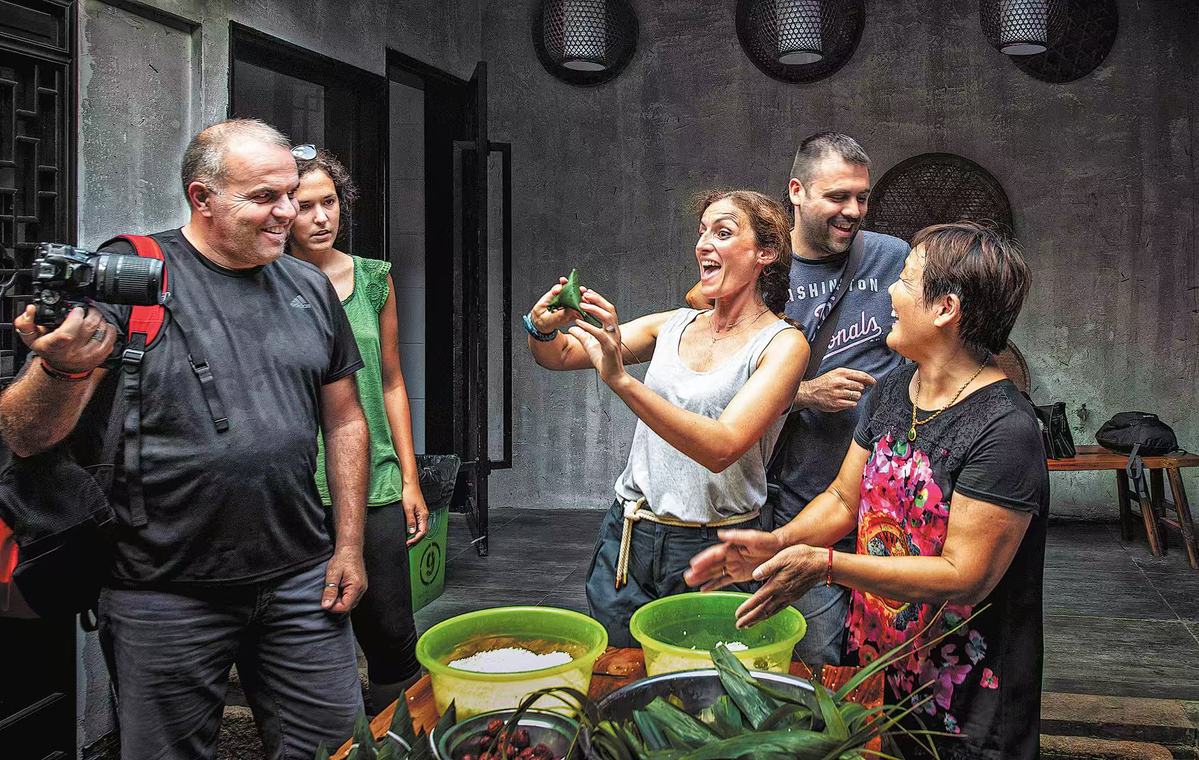
The new facility was designed from the ground up to manufacture the latest products. Among them is the company's latest coaxial reducers for electric vehicles — components that Kress described as "like shifting gears, but much smarter".
They take the motor's high-speed energy and fine-tune it to the perfect wheel speed, making EVs smoother, quieter and more efficient.
That ability to innovate locally rather than simply import products has been key to Taicang's appeal.
"When China's EV boom took off, Schaeffler didn't just follow — it led, launching and mass-producing the new gearboxes right here in Taicang. Now they're going global, alongside our Chinese clients," he said.
Taicang's rise owes much to a pragmatic local government that understands when to step in and when to leave businesses to their own businesses.
According to Tomas Herman, deputy general manager of German auto supplier Brose Taicang Automotive Systems Co Ltd, when applying earlier this year for green-factory certification, the company encountered some questions.
"We received all the answers the next day," he emphasized. That "unseen stewardship", as he said, has fostered a deep trust.
"That's also the reason why we have three factories. Actually in Taicang, this is one of the three, and we believe that we will have a bright future in Taicang," he said.
It took 14 years — from 1993 to 2007 — for Taicang to land its first 100 German firms. But momentum picked up fast. The 400th German firm arrived in 2021. The 500th German firm touched down in January 2024.
Government incentives have added further fuel. In January, Suzhou held a pivotal industrialization conference, reaffirming its commitment to becoming a "global leader in smart manufacturing". The city set its sights on ambitious goals, including surpassing 4.8 trillion yuan in industrial output by 2025 and 10 percent annual growth in industrial investment.
This is also in line with China's goal of further deepening reforms comprehensively, expanding high-standard opening-up and building a modern industrial system, as proposed at the 2024 Central Economic Work Conference in December.
Liu Xiaotao, then Party secretary of Suzhou, said: "Suzhou has a complete industrial system, abundant innovation resources, diverse application scenarios and an excellent business environment. In the face of new industrial and tech trends, as well as changes in the international environment, Suzhou has stronger competitive advantages and should boldly take on greater responsibilities."
In January, the Suzhou government announced new policies to support foreign-invested enterprises, including a maximum support of 10 million yuan in establishing corporate research institutes and increasing R&D investment in the city.
The city also vowed tax breaks for foreign manufacturing enterprises reinvesting profits, further sweetening the pot for companies.
At a separate conference meeting with German companies, Liu said cooperation between Suzhou and Germany has a solid foundation and abundant opportunities for growth, adding that as Suzhou advances new industrialization, the city looks forward to further strengthening ties with German companies.
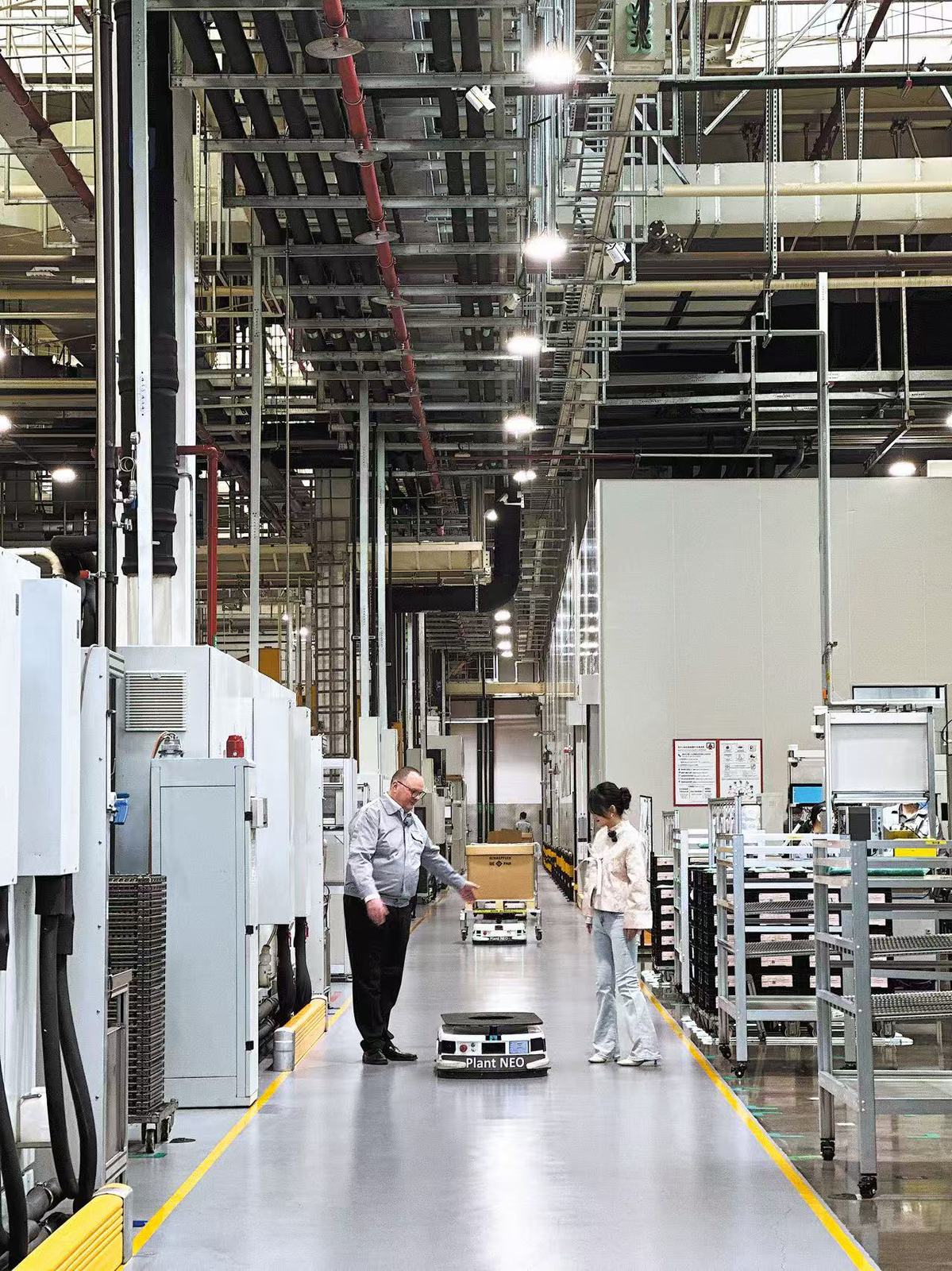
Amazing Taicang! In China, for China, grow with China. CHINA DAILY
"Suzhou will also continue to expand high-standard opening-up and actively create a first-class business environment to offer favorable conditions for German enterprises to thrive," he said.
As Taicang's German community grew, demand for vocational talent skyrocketed. Still, machines alone don't build industries — people do.
In response, Taicang imported Germany's vaunted "dual education system", whereby apprentices spend part of the week in classroom lectures on processes and part on the factory floor under master technicians.
"They learn theory in school, then apply it immediately in our workshops," said Willi Riester, CTO of Chiron Machine Tools (Taicang) Co Ltd.
Riester likened the program to a "talent reserve account" that guarantees a pipeline of high-quality workers. Companies commit to guiding apprentices through their entire careers.
"We develop these young talent according to our precise needs. Then we support them long-term, ensuring that loyalty and expertise stay here," he added.
The proof lies in the data. Collective German investment has now topped $6 billion, even as US-China trade tensions and global supply-chain shocks rattled many multinationals. Instead of pulling back, German companies here have expanded.
Krones, a Bavarian beverage-packaging specialist, announced a 200 million euro ($225 million) expansion last year to double its capacity, workforce and annual output.
Merck, a German life-sciences giant, runs a materials-development center in Taicang that serves China's burgeoning semiconductor sector.
Heraeus, Trumpf and other German stalwarts have fine-tuned their operations here, citing the city's blend of reliable local partners, a cohesive expatriate community and practical bureaucracy.
In early 2025, Standard Foods broke ground on an intelligent digital supply-chain hub for high-end edible oils, a $70 million project expected to generate 800 million yuan in annual output.
"We're confident in Taicang's development and eager to deeper cooperation," said Lin Zhihong, general manager of Standard Foods' China supply-chain center.
Across town, Taicang is already eyeing the next phase of growth: integration of artificial intelligence in production, carbon-neutral manufacturing and deeper collaboration on next-generation battery materials.
"China's market is massive," said Kress from Schaeffler, "but Taicang shows how German companies can succeed here by blending our precision with Chinese scale and speed."
Back at the Brotecke bakery, bread is shaped into intricate snake-year loaves, a nod to Chinese tradition.
In Taicang, German rigor and Chinese dynamism have created a recipe whose flavor only deepens with each rising cycle — proof that this little city has become much more than a manufacturing outpost.
Doing business here is, in the words of one executive, like baking a good loaf of bread, is making the "bread of happiness" between China and Germany, and more importantly, is only just the beginning.
Contact the writers at liuweifeng@chinadaily.com.cn















